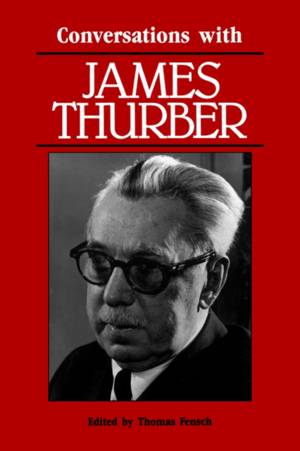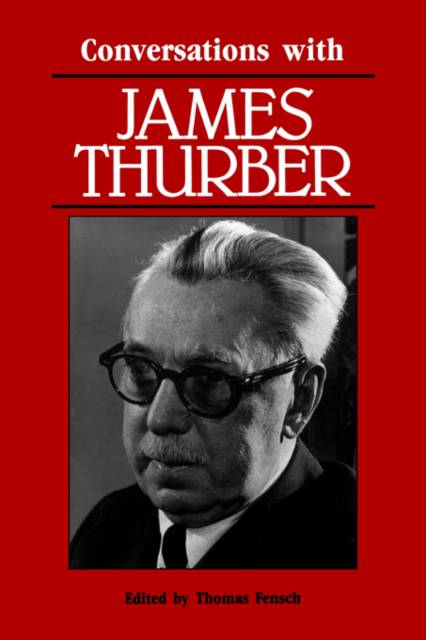
Bedankt voor het vertrouwen het afgelopen jaar! Om jou te bedanken bieden we GRATIS verzending (in België) aan op alles gedurende de hele maand januari.
- Afhalen na 1 uur in een winkel met voorraad
- In januari gratis thuislevering in België
- Ruim aanbod met 7 miljoen producten
Bedankt voor het vertrouwen het afgelopen jaar! Om jou te bedanken bieden we GRATIS verzending (in België) aan op alles gedurende de hele maand januari.
- Afhalen na 1 uur in een winkel met voorraad
- In januari gratis thuislevering in België
- Ruim aanbod met 7 miljoen producten
Zoeken
Omschrijving
In Conversations with James Thurber this remarkable man who has been called America¿s twentieth-century Mark Twain and who was one of the great talkers of his time expresses his opinions on just about everything and recounts stories and anecdotes about his life which provided the basis for much of his humor writing. These entertaining interviews, conducted by Arthur Miller, Harvey Breit, George Plimpton, Arthur Gelb, and others, span twenty-two years, from 1939--1961. In them Thurber recalls his youth in Columbus, Ohio, his struggles as a student at Ohio State University, and his days of literary and journalistic apprenticeship in Europe as a code clerk and newspaperman who had to recreate entire stories from a few words of coded copy provided by the wire service. He tells too of his early days in New York City when he joined the staff of The New Yorker, of the origins of his drawings, of the pleasures that word games and mental puzzles gave him, and of his increasing blindness and its effect on his work and his perception of the world. As a man who like to express his opinions and to have an audience, Thurber enjoyed interviews and rarely refused to grant them. With the interview format he became so skilled that he perfected the interview-monologue into a Thurberesque art form, the oral equivalent of the autobiographical essay that he refined in his prose.
Specificaties
Betrokkenen
- Auteur(s):
- Uitgeverij:
Inhoud
- Aantal bladzijden:
- 144
- Taal:
- Engels
Eigenschappen
- Productcode (EAN):
- 9780878054107
- Verschijningsdatum:
- 1/09/1989
- Uitvoering:
- Paperback
- Formaat:
- Trade paperback (VS)
- Afmetingen:
- 155 mm x 230 mm
- Gewicht:
- 254 g

Alleen bij Standaard Boekhandel
+ 101 punten op je klantenkaart van Standaard Boekhandel
Beoordelingen
We publiceren alleen reviews die voldoen aan de voorwaarden voor reviews. Bekijk onze voorwaarden voor reviews.









